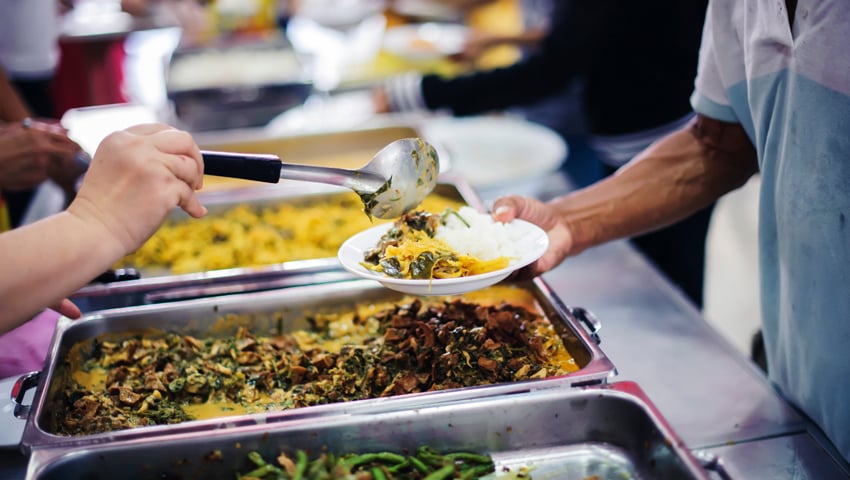THE FOOD, Farming and Countryside Commission has released a new report, Beyond charitable food aid, which responds to urgent calls for real, sustainable and long-lasting food security from leaders across sectors.
The report is the result of a collaboration between FFCC, Local Trust and International Futures Forum – and shows how civil society can lead the way in delivering food to those who need it most in a way that also tackles the triple challenge of climate, nature and health.
It suggests that a transition away from short-term solutions towards a ‘best of both worlds’ approach that also looks to the long term can help citizens access healthy food both now and in the future.
This timely report comes shortly after the much anticipated Food Security Summit at No.10 and the concerns that were raised over its narrow focus, and risk that focusing exclusively on food security becomes a rationale for continuing business as usual.
The report highlights some of the complexities and contradictions of the food aid model, pointing to the unsustainable supply chains that create the waste or surplus food going into food aid initiatives, and exacerbate a race to the bottom when it comes to quality, nutrition and sustainability in food.
The report’s author, Dr Courtney Scott, said, “Neither food waste nor food insecurity should exist. While there are undoubtedly tensions and dilemmas between meeting the immediate issue of rising food insecurity and the actions needed to deliver long-term, systemic change, there can be a ‘best of both worlds’ solution.
We hope that policymakers and industry leaders can draw inspiration from the bold approach of many funders and community organisations and demonstrate ambitious leadership for the courageous and urgent action that is needed to build real UK food security.”
To help transition towards a different future, the report suggests funders can:
- Visualise a future where people participate in local food initiatives because they want to, not only because they need to, where food aid is an enabler, not the end of the road, and funded work uses food to bring communities together and people into spaces for assistance (e.g. benefits help). Over time, this approach strengthens localised food systems.
- Identify the values they wish to see in a future beyond charitable food aid, use those to drive their funding, and seek to express them in all actions at all levels, including in emergency relief. Funders should not accept the damage and harm that the existing system tolerates/encourages.
- Prioritise funding to build on existing initiatives and through an organic, asset-based approach rather than imposing a model from outside. That includes infrastructure – building on what already exists in the community. This isn’t limited to physical infrastructure, but also social/emotional, cultural, logistical, political, or financial infrastructure.
- Offer funding to enable community groups to find the time and space for learning and broader development. When faced with the overwhelming work needed to alleviate people’s hunger, it can be difficult to find the time to step back and look at the bigger picture. It can also feel overwhelming to add another ‘to-do’ item. This is something funders can help with.
- Offer experimental funding for existing initiatives to try out and learn from new approaches – the ‘adjacent possible’- without pressure to ‘succeed’ on the first go. This might include initiatives to experiment with sourcing healthier and more sustainable food for their projects (fresh foods, agroecologically grown, etc), or providing funding for organisations to advocate for national or local policy changes to ensure people have sufficient incomes/benefits.
- Provide funding for the social glue that helps move food initiatives towards a future where people come by choice, rather than need – e.g. to create warm and inviting spaces that use music, storytelling, or other aspects to bring people together. Focus on people as the agents of change and invest funding to adequately resource people.
- Set aside some funding to enable communities and initiatives to come together, to learn from and support each other, and to create cooperatives or collaborative groups of projects working together to meet a variety of food needs in their communities (e.g. local horticultural projects linked with community kitchens, or emergency food aid providers linked with sustainable social supermarkets and a benefits advice service).
